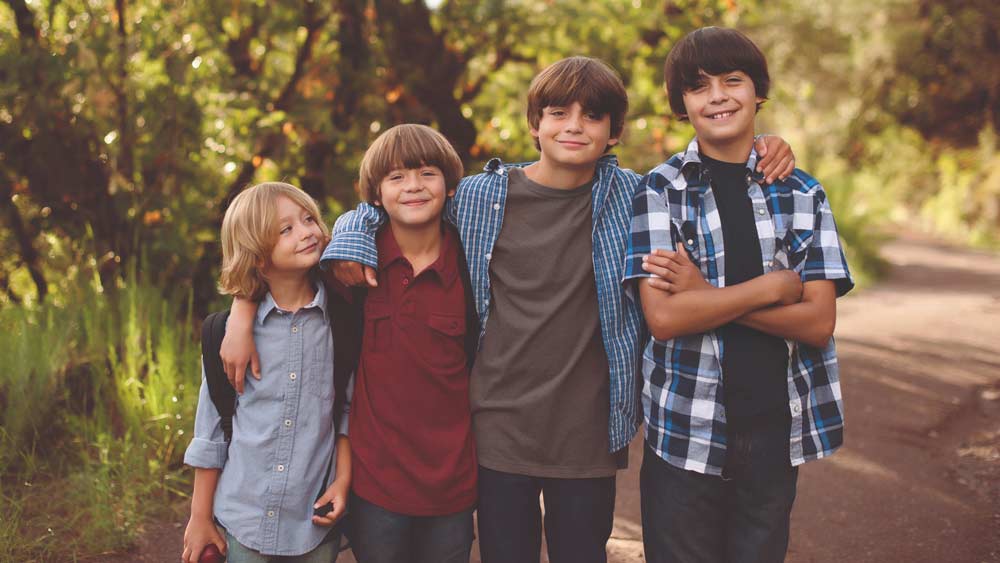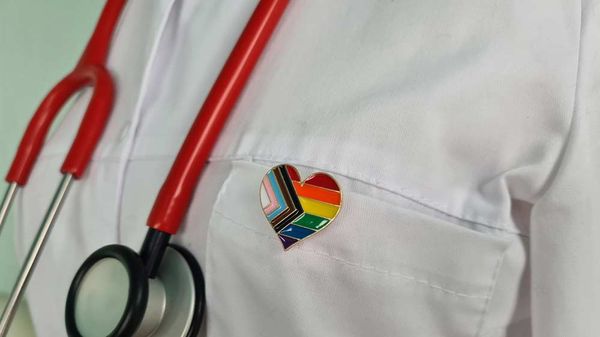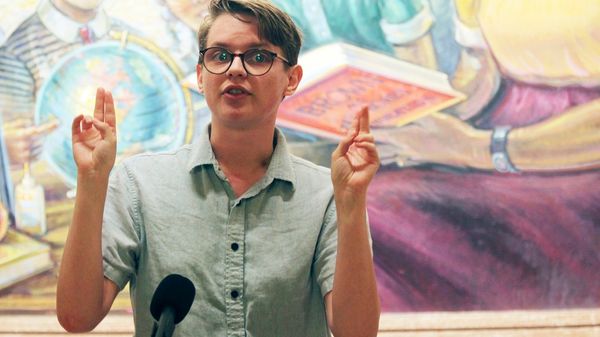Apr 16
New Study Confirms Link Between Gay Men and Birth Order... and Reveals Something Else
Kilian Melloy READ TIME: 3 MIN.

It's long been observed that there seems to be a strong correlation between men being gay and having older male siblings. A massive study in the Netherlands has not only confirmed this, but produced an unexpected new finding.
The New York Post recounted that a university professor named Scott Semenyna told NPR that the apparent link between a man having older brothers and being gay "has been documented around Canada and the United States," as well in a number of other countries. Semenyna mentioned Mexico, Brazil, Turkey, and Samoa.
It's not a surprise that a scientific observation derived from the population of one nation would also be observed among the populations of other countries. Scholarly studies have long indicated that human sexuality is much the same globally and throughout history as well; in short, LGBTQ+ people, gay men included, have been part of every human society for as long as there have been human societies.
Gay animals have also been observed in more than 1,500 non-human species in the wild, further verifying that far from being "unnatural," same-sex attraction is part of the natural order.
Researchers have even been able to quantify the statistical likelihood of a man being gay depending on how many older brothers he has.
"Known since the 1990s as the fraternal birth order effect, it has been theorized that men have roughly a 33% increased probability of being attracted to men for every older brother they have, according to Semenyna," the Post detailed.
"The effect is cumulative," NPR noted. "The more older brothers someone has, the bigger it is. If you have one older brother, your probability of being gay nudges up to about 2.6%," as opposed to the 2 - 3% probability of the average person from the population as a whole.
"And then that probability would increase another 33% if there was a second older brother, to about 3.5%," NPR quoted Semenyna explaining.
And the effect doesn't stop there. "If you have five older brothers, your chance of being gay is about 8% – so, four times the baseline probability," NPR added.
A massive study conducted in the Netherlands surveyed a jaw-dropping number of people – more than nine million – and confirmed the observation all over again, NPR relayed.
But, NPR added, the Netherlands study "added a twist."
One of the Netherlands study's authors, University of Melbourne's Jan Kabátek, told NPR that the massive study "also showed that the same association manifests for women."
Put another way: "Women who were in same-sex marriages were also more likely to have older brothers than other types of siblings," NPR detailed.
Researchers had no reason to expect that new revelation. NPR said that one theory for the birth order effect is that mothers who have male children develop an immune response to subsequent male children, producing antibodies that could have a bearing on the development of a fetus – specifically, brain development. Neurological research has shown that far from being a "choice," sexual orientation seems to be a matter of hard-wiring in the brain.
"The plausibility of this hypothesis was bolstered by a 2017 study that found 'that mothers of gay sons have more of these antibodies that target these male-specific proteins than mothers of sons who are not gay or mothers who have no sons whatsoever,'" NPR quoted Semenyna saying.
It's unclear if the new study's revelation will require any substantial revision of the existing maternal immune hypothesis.
"One option is that the immune hypothesis works for both men and women," Kabátek told NPR. "Of course, there can be also other explanations. It's for prospective research to make this clearer."
Kilian Melloy serves as EDGE Media Network's Associate Arts Editor and Staff Contributor. His professional memberships include the National Lesbian & Gay Journalists Association, the Boston Online Film Critics Association, The Gay and Lesbian Entertainment Critics Association, and the Boston Theater Critics Association's Elliot Norton Awards Committee.




